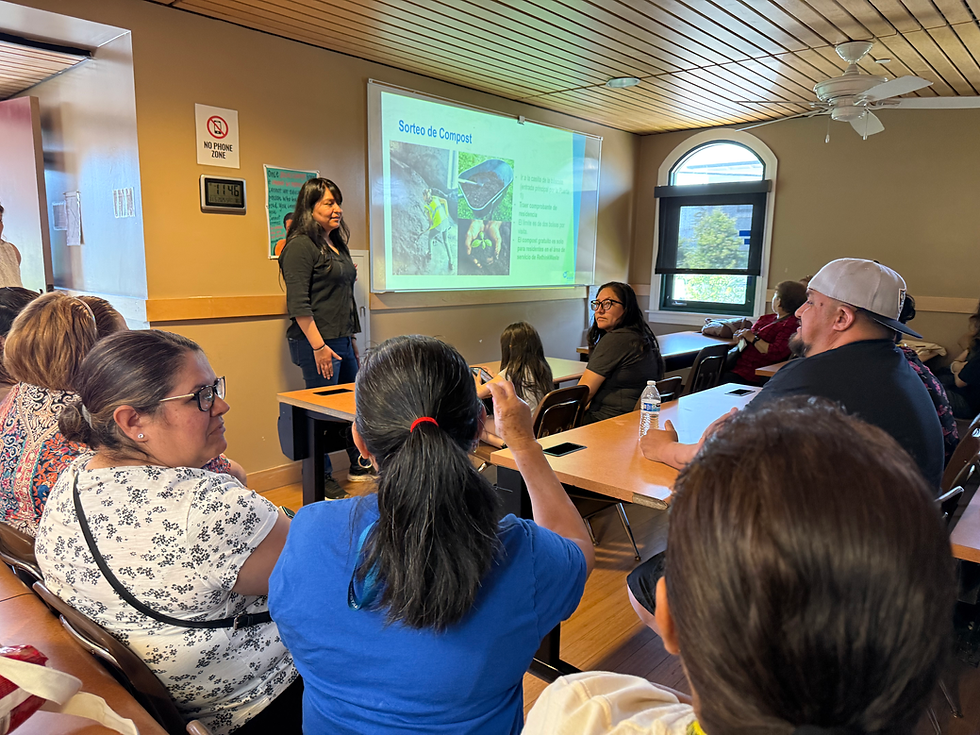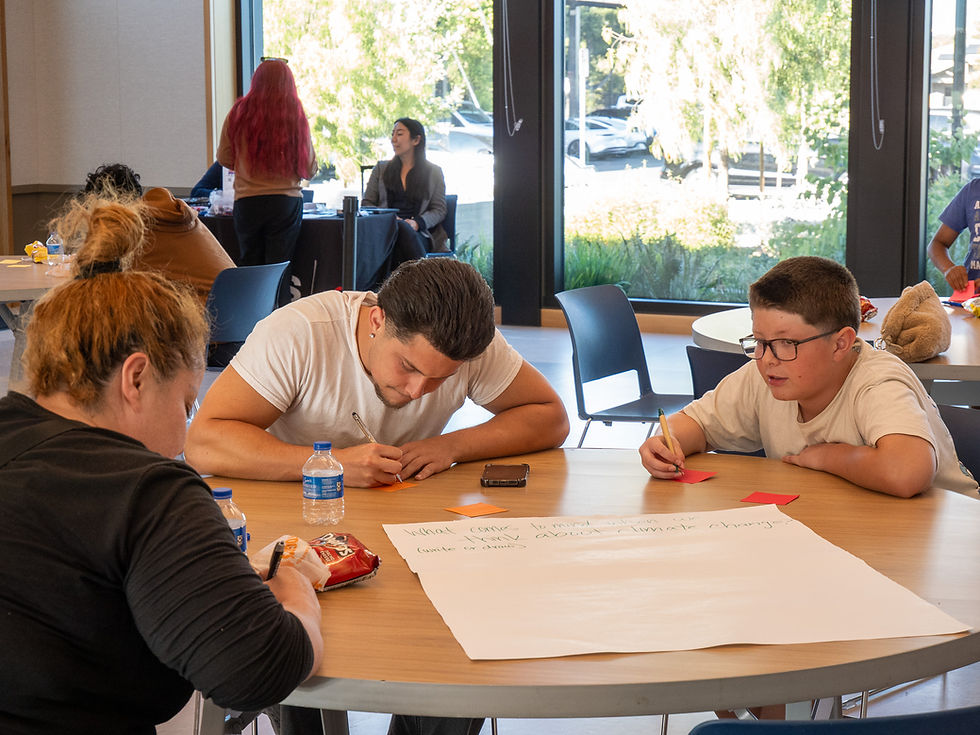North Fair Oaks Residents Exchange Appliances and Stories at Sort and Swap Event
- Lina Karamali
- Sep 2, 2025
- 4 min read
Updated: Sep 4, 2025
By Olivia Johnson, Environmental Storytelling Intern

Matter cannot be created or destroyed, only altered in its form. So, while disposing of waste may make us feel that we’re erasing its existence, its invisibility is merely a tactic we use to avoid confronting the issue. Our current waste systems streamline this process by enabling us to discard our trash immediately after its purpose is served—thrown down a garbage chute or tucked away under kitchen sinks. The social avoidance of waste promotes a culture of shame surrounding its presence in our homes and neighborhoods. But for the residents of North Fair Oaks, an unincorporated area in San Mateo County, refuse is, upsettingly, on full display.
The issue of illegal dumping poses a threat to both the appearance and the health of the community. Many residents report that bulky items are often left on street curbs, and it is difficult for locals to obtain compost and recycling bins. Unfortunately, where North Fair Oaks needs the support of waste management systems the most, the resources feel absent.
While many view North Fair Oaks as an area within Redwood City or Menlo Park, its status as an unincorporated region of San Mateo County means that North Fair Oaks is not governed by a local municipal corporation in the same way a city or town is. Rather, it is under the jurisdiction of a larger governmental entity. As such, North Fair Oaks residents face a unique challenge: ensuring their voices are heard by county officials with commitments to the greater San Mateo region.
Seeing this disconnect, Climate Resilient Communities and other local organizations are working to amplify and address community needs and ensure governmental agencies are providing tangible resources to address local issues—especially in regards to waste. On May 28, 2025, Climate Ready North Fair Oaks, one of the climate change community teams (CCCTs) that Climate Resilient Communities helps facilitate, hosted a “Sort and Swap” workshop at the Fair Oaks Community Center. This part-educational, part-forum, deeply community-oriented event created a space in which residents and local advocacy groups could discuss their desires regarding waste management in North Fair Oaks.
The event began with presentations from workshop partners: Recology, a waste management and resource recovery agency serving the Bay Area; Rethink Waste, another waste management service that oversees the Shoreway Environmental Center and services San Mateo County; and San Mateo Environmental Health, a county government office aiming to address environmental hazards in the community. In addition to these institutions, local leaders’ work to uplift the North Fair Oaks community was a highlight of the event. El Concilio of San Mateo County, a non-profit organization focused on health equity advocacy, and Promotoras, a coalition of activists from North Fair Oaks, both presented at the Sort and Swap. The Promotoras model provided an empowering guidebook for residents on how to become leaders in their community, while El Concilio wanted to hear about how their organization could assist locals in their fight for waste justice. Recology and Rethink Waste similarly focused on listening to community members and ensuring they had the facilities they wanted at their disposal; Recology distributed table-top compost bins, while Rethink Waste presented on how to sort waste in a tri-bin system and where compost goes. The work of these organizations echoes a sentiment expressed by Kamille Lang, Director of Outreach and Engagement at Climate Resilient Communities: “the community feels empowered to make these changes happen; all [we’re] doing is asking more questions.”

The latter half of the event was dedicated to a clothing and appliance swap, in collaboration with the National Association of Hispanic Nurses. Clothing swaps are a relatively modern practice, and Lang describes them as “yard sale[s] without money:” a way for communities to exchange their belongings. To incentivize attendance, participants were rewarded if they arrived early, greeted by staff with tote bags and other merchandise. At the swap itself, North Fair Oaks residents traded clothes, coffee pots, appliances, and their stories. The event was centered around residents’ desires to be rooted in solidarity and collaboration with one another. The face-to-face interaction with neighbors and government officials were as beneficial as the educational work and direct resources. Attendees came from a range of ages, and though younger participants were slow to warm up, their knowledge of waste-sorting and recycling from school made them an important instructive force at the workshop.
Yet, in Lang’s eyes, there’s more work to be done. The event was organized entirely in Spanish, but, in the future, organizers hope to have presentations in both English and Spanish to open up resources like these to a wider audience. Lang also mentioned the need for more outreach in the future, both to external organizations and the community itself. Structured requests, she states, are of crucial importance when planning a gathering as ambitious as this. Furthermore, ensuring the physical space an event is held in is accessible to the greater North Fair Oaks area is imperative to encourage community participation and show residents that changemaking doesn’t have to be a bureaucratic process—it can happen through simple conversations with their neighbors. Despite minor hiccups, the intent of Climate Resilient Communities and their co-collaborators is clear: they are there to listen to the community and help execute their vision—whatever shape it takes.



Comments